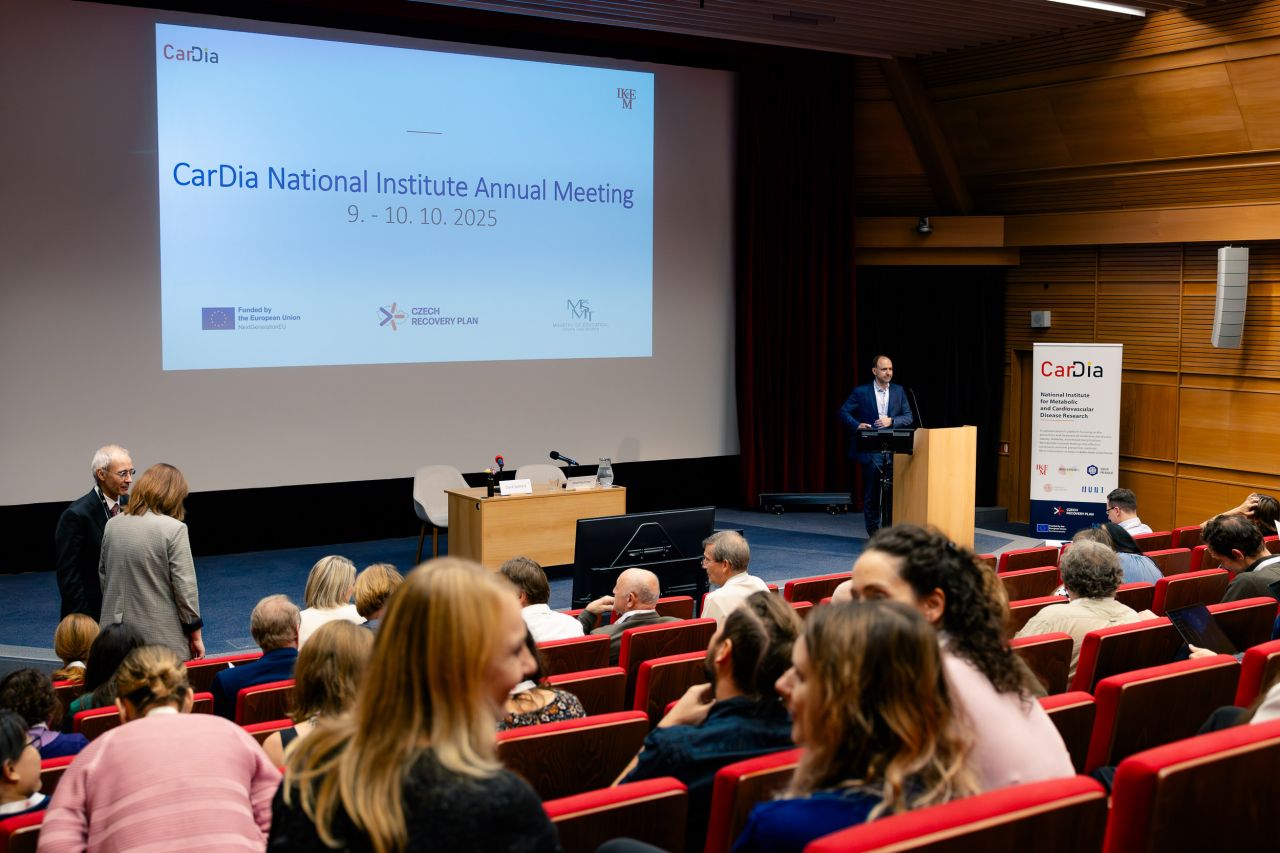
At the end of last week, October 9–10, 2025, the final meeting of the National Institute CarDia project took place at the Institute for Clinical and Experimental Medicine (IKEM) in Prague. Doctors and scientists gathered to evaluate the results of three years of research and discuss opportunities for further collaboration between clinical and basic research.
As part of the program, Prof. Barry A. Borlaug from the Mayo Clinic (USA) joined the participants online and gave a lecture on "Obesity and Heart Failure: From Mechanisms to Therapies."
The National Institute CarDia project, implemented between 2022 and 2025 and financed by the National Recovery Plan (i.e., European Union funds), brought together leading experts in the field of biomedical research. The project involved the IKEM, the Institute of Physiology of the Czech Academy of Sciences, the Institute of Organic Chemistry and Biochemistry of the Czech Academy of Sciences, the First and Third Faculties of Medicine of Charles University, and Masaryk University.
The aim of the project was to discover new biological mechanisms and pathways that will lead to more effective prevention, diagnosis, and treatment of diabetes, obesity, and cardiovascular diseases.
The project was run efficiently and economically under the leadership of IKEM – within 3.5 years, a number of significant scientific results were achieved and a large number of scientific studies were published in prestigious journals, even though the original plan was for the project to last five years.
The project also included investment in key research infrastructure:
magnetic resonance imaging for advanced imaging in small laboratory animals at IKEM,
state-of-the-art equipment for comprehensive analysis of metabolites and other low-molecular-weight substances at the Institute of Physiology of the Czech Academy of Sciences.
This equipment will significantly strengthen the capacity of Czech research in the field of basic and translational studies. In addition, the project has stimulated new scientific collaborations between the participating institutions, as well as their involvement in European collaborations and projects.
The National Institute CarDia project is in line with the Czech government's main priorities in the field of healthcare, which focus on the prevention and early treatment of lifestyle diseases such as diabetes, obesity, and cardiovascular disease—a major health and social problem today. Its focus and results are therefore in line with the strategic objectives of the Czech Ministry of Health.
A major challenge for the future remains securing long-term funding for such important research so that it is possible to build on the results achieved and make effective use of the funds spent to date.